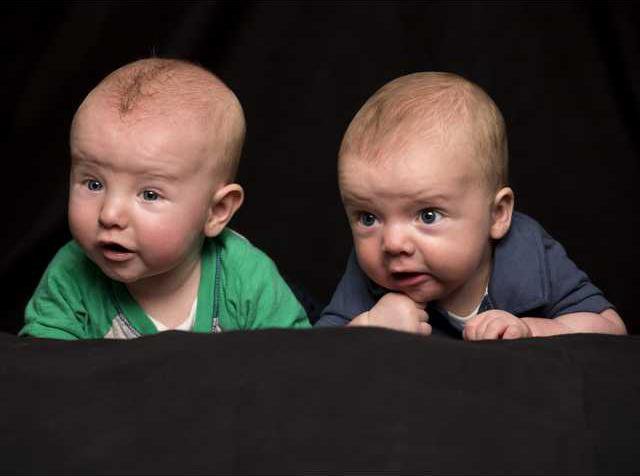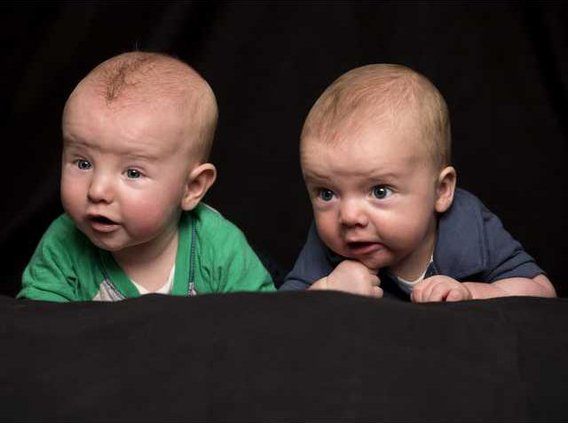Adults remember highly charged emotional events, from a first kiss to the death of a loved one. Infants, however, remember just the good times.
A Brigham Young University study published in Infant Behavior and Development found babies just 5 months old are more apt to remember positive events than either neutral or negative ones.
Affect and emotion are among the first things babies and others communicate about, said lead author Ross Flom, an associate professor of psychology. The baby can't say she's hungry or upset, but she can coo or cry and otherwise clue those around her to whether she's in a happy state or not.
Ask a child or adult about a first memory, he said, and it's likely that the recollection will hark back to age 3 or 4.
"We know memory forms in infants, but they don't remember them," said Flom, who explained that describing early memory involves language and babies don't have that, so very young memory is "stored in kind of a sensory-motor type of code."
How long those memories stick around is also unknown, he added.
"A newborn can recognize and remember the sound of his mother's voice, though he only heard it in utero," Flom said. "They are capable of learning and knowledge."
Design and findings
For the study — the first to look at how emotion impacts baby memory — the researchers set babies in front of a flat-panel monitor on which an individual spoke with either a happy, angry or neutral voice and face. Then they were shown a geometric picture similar to what one might see in a kaleidoscope, made up in the colors black, blue and gray.
After five minutes and again a day later, the babies were shown the original image from the study and a new one next to it of the same colors, pattern slightly rearranged. The researchers looked to see what the baby was eyeballing, since babies are known to prefer to look at new, unfamiliar things, said Flom and a study co-author, Brock Kirwan, assistant professor of psychology and neuroscience. They measured where the infants looked and for how long.
The babies' memories for the pictures were significantly better when the first exposure was linked to a positive voice and face.
"We think what happens is that the positive affect heightens the babies' attentional system and arousal," Flom said in background material for the study. "By heightening those systems, we heighten their ability to process and perhaps remember this geometric pattern."
Using what they learn
Kirwan studies adult memory, his particular interest is how the brain forms and retains long-term memory.
"I think it's interesting that at even 5 months, you see the effects on memory of emotion," he said. "After a five-minute delay, you see better memory after a positive emotion than a negative or neutral emotion."
Adults remember the positive, but they also remember negative, such as a trauma like a car accident or death. That's largely due to the way the brain is set up, he said. It's possible that a reward circuitry of some kind comes into play for remembering positive emotions. He's studying it in adults and would like to study it in younger subjects.
The findings on baby memories might have some impact in learning environments, like schools, both Kirwan and Flom said. Maybe a positive environment would improve children's ability to learn. It could have implications for how classrooms are structured.
"Do you learn better if you lose points for poor behavior or if you gain points for good behavior?" Kirwan said. "There are all sorts of implications based on context."
Study co-authors were undergraduate and master's students Rebecca B. Janis and Darren J. Garcia.
Email: lois@deseretnews.com, Twitter: Loisco








